There is always some drama that might happen in one’s neighborhood when people can’t follow property lines or, perhaps, don’t know how to manage the amount of noise they make. However, some folks take their personal preferences so far that they actually feel entitled to walk up to the home next door with a list of demands.
A woman shared her story of a particularly entitled neighbor who came by to demand she change her garden as it “bothered” her dog. We reached out to the netizen who shared the post via private message and will update the article when she gets back to us.
Having a garden on your own plot of land is a lovely endeavor
Image credits: Gustavo Fring / Pexels (not the actual photo)
But one woman was surprised when her neighbor asked her to literally move her garden
Image credits: Polina Zimmerman / Pexels (not the actual photo)
Image credits: Mithul Varshan / Pexels (not the actual photo)
Image credits: FinishFina
Image credits: Maksim Goncharenok / Pexels (not the actual photo)
Some people don’t understand where boundaries begin and end
The urge to police a neighbor’s garden or yard, even if it’s not your own, comes from an interaction of social, psychological, and practical forces that can make unsolicited requests appear completely reasonable to the requester. However, just because someone comes off as reasonable, it doesn’t mean they are right. At the same time, just to get it out of the way, “Linda” is by no means reasonable here. Her demands are entitled and a little bit unhinged, but it’s still worth exploring why someone might look at another person’s property and start making demands.
There’s, first of all, the idea of shared community standards. In many neighborhoods, particularly those governed by homeowners’ associations or old-fashioned informal norms, appearances become a stand-in for property values and communal respect. A well-groomed hedge or row of whole flower gardens may be everyone’s concern, since a sloppy lawn possibly can pull down the curb appeal, and value, of every home on the block. If one believes his or her own land could be hurt, they may think it’s his prerogative to take action. This is what many home-owners associations seek to prevent, although, notably, they don’t tend to win any popularity contests.
Second, control and territoriality are involved. People have a tendency to extend the mental boundary of their “home turf” out into the surrounding environment, they see the street, sidewalks, and even other people’s bushes as a shared buffer zone. The more intimate the familiarity, the easier it is to blur “my space” and “our space.” One might mean that one has the right to tell how that space is treated, from what type of flowers are planted to the size a tree is to grow.
Image credits:Lisa from Pexels / Pexels (not the actual photo)
Just because something doesn’t match your preferences, doesn’t mean it’s “wrong”
Some people have an overactive sense of “order” (as defined by their own preferences) and seek to “impose” it on anyone around them. Gardens and lawns that are not tidy, predictable patterns can evoke discomfort or unease. If a yard looks “wild” or “unkempt,” it can be seen as proof of neglect or chaos, something opposed to our need for order in daily life. To others, expecting conformity in their environment is a coping mechanism to restore a sense of control. Of course, this is already unacceptable and downright entitled behavior, but acting like one’s neurotic dog is offended is even worse.
Praising a neighbor’s perfectly manicured grass or criticizing a messy yard communicates something about your own values and tastes. Insisting on, tactfully, cement’s one’s reputation as a good citizen. Underhandedly, it is even a power game: “I’m looking out for this neighborhood, and you ought to be too.” Linda attempts to shift the blame for her loud dog onto the woman with the garden, perhaps hoping this will get her to “move” some of the sections.
Finally, ignorance or overconfidence of the law is often what leads to these requests. Few people are keenly familiar with boundary lines, easement rights, or the limits of municipal ordinances. Armed with inadequate information, or simply believing they’re on the right track, they can call up “rules” that don’t exist, thinking they’re doing their neighbors a favor by bringing to their attention “infractions.” The interplay between sensed community investment, territorial motivation, desire for order, social signaling, and unclear legal awareness can make boundary-crossing demands appear almost compulsory to some, despite that yard technically belonging to another person under the law.
People gave some suggestions and thought she shouldn’t budge an intch
Thanks! Check out the results:



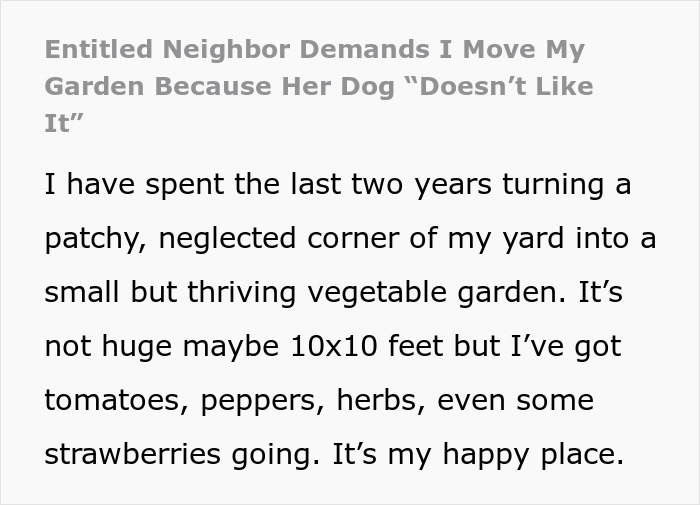
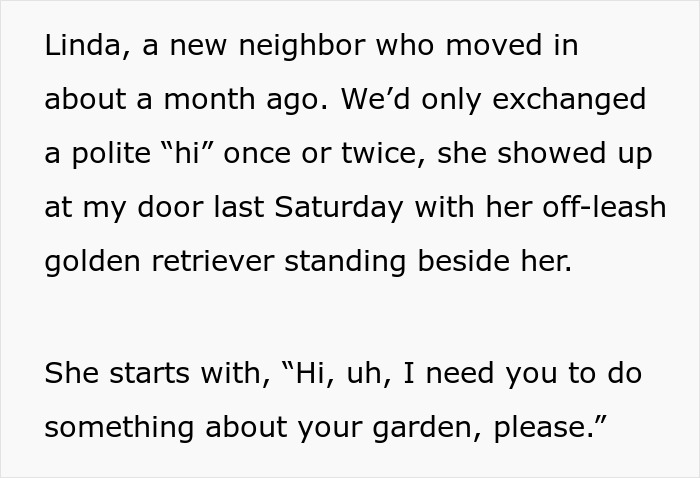



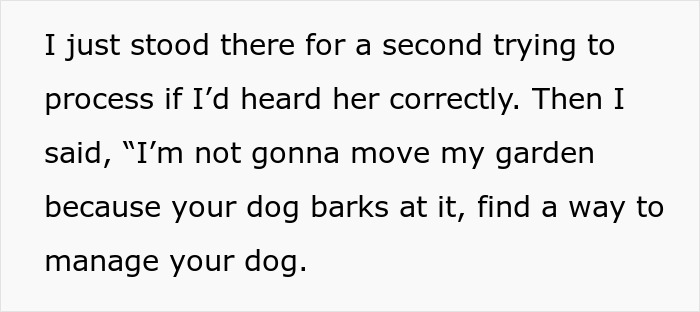

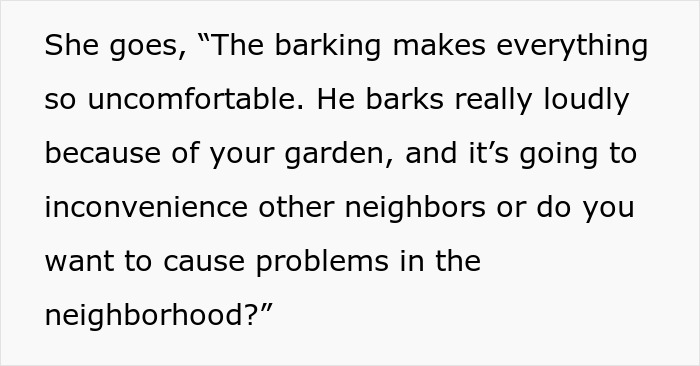
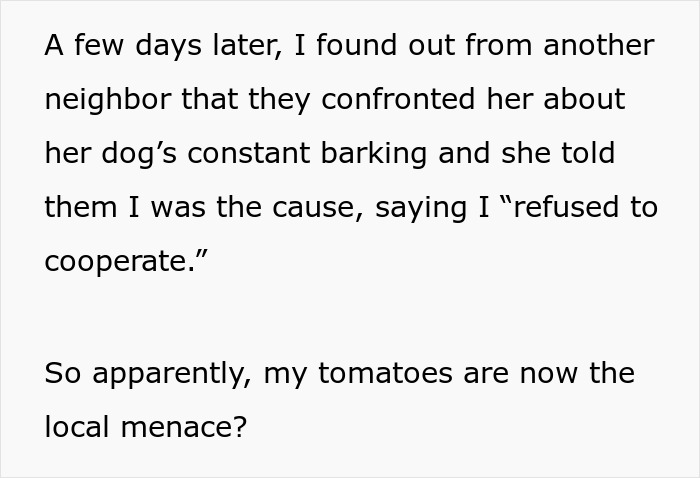


0 Comments